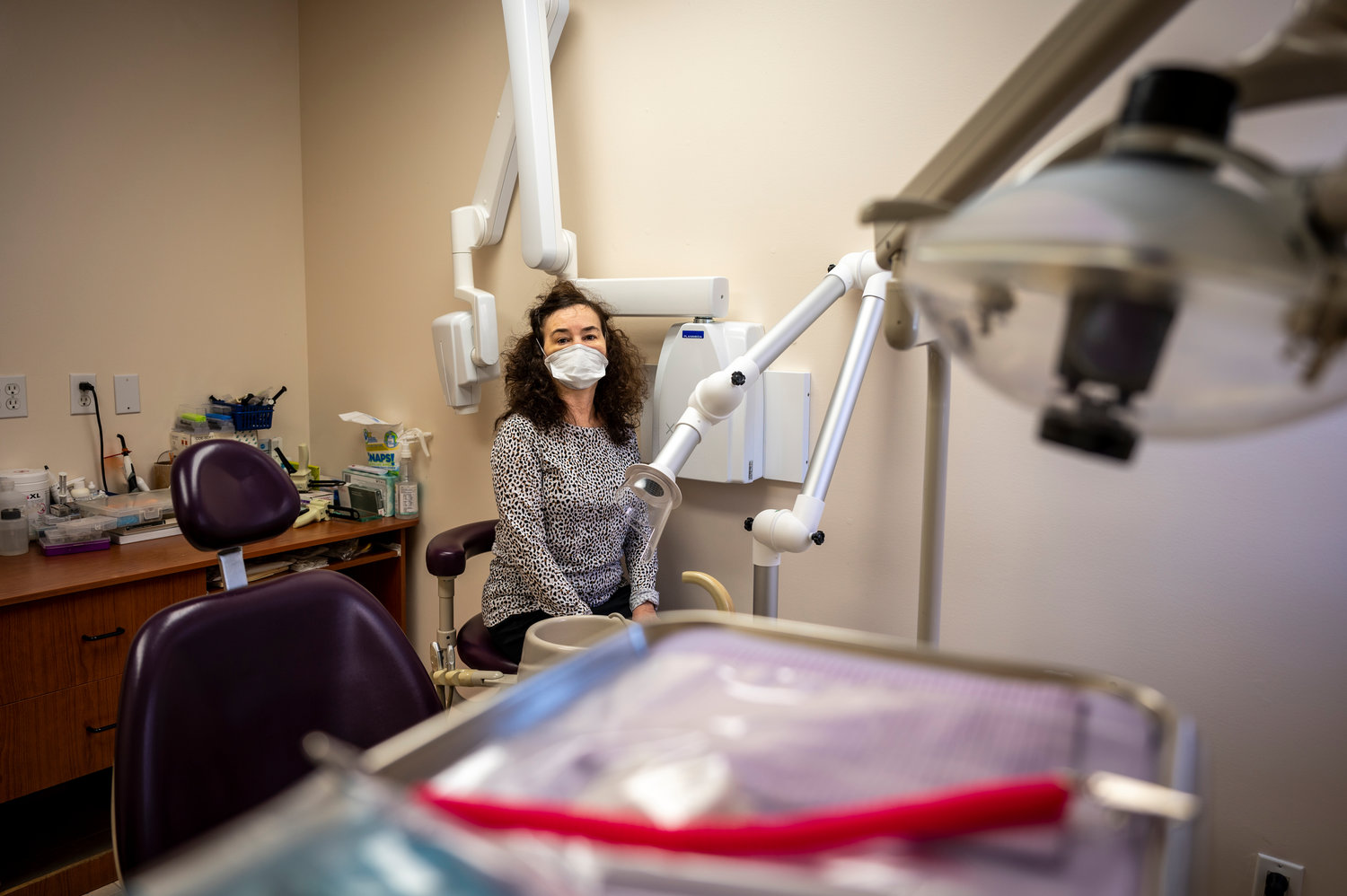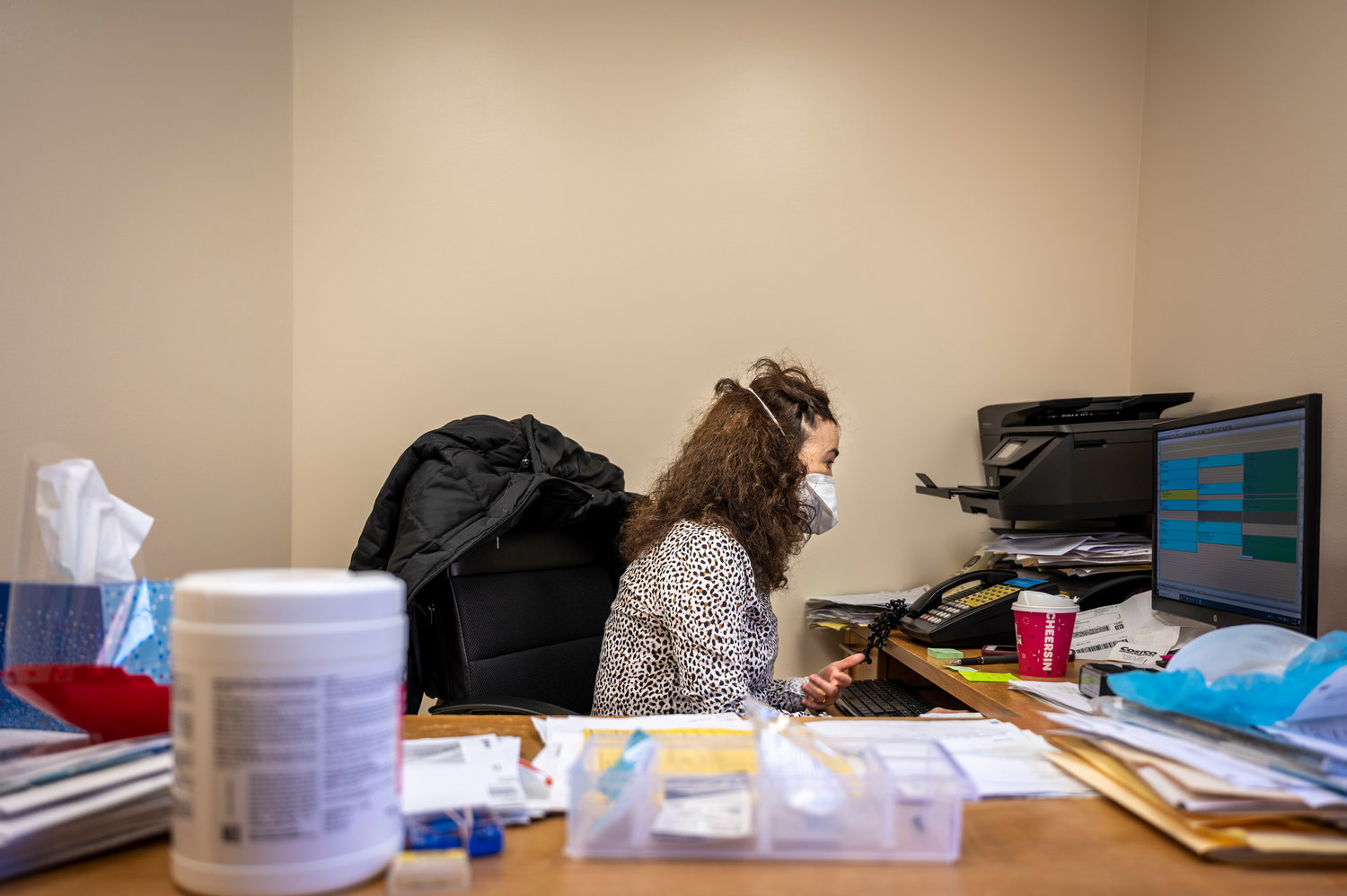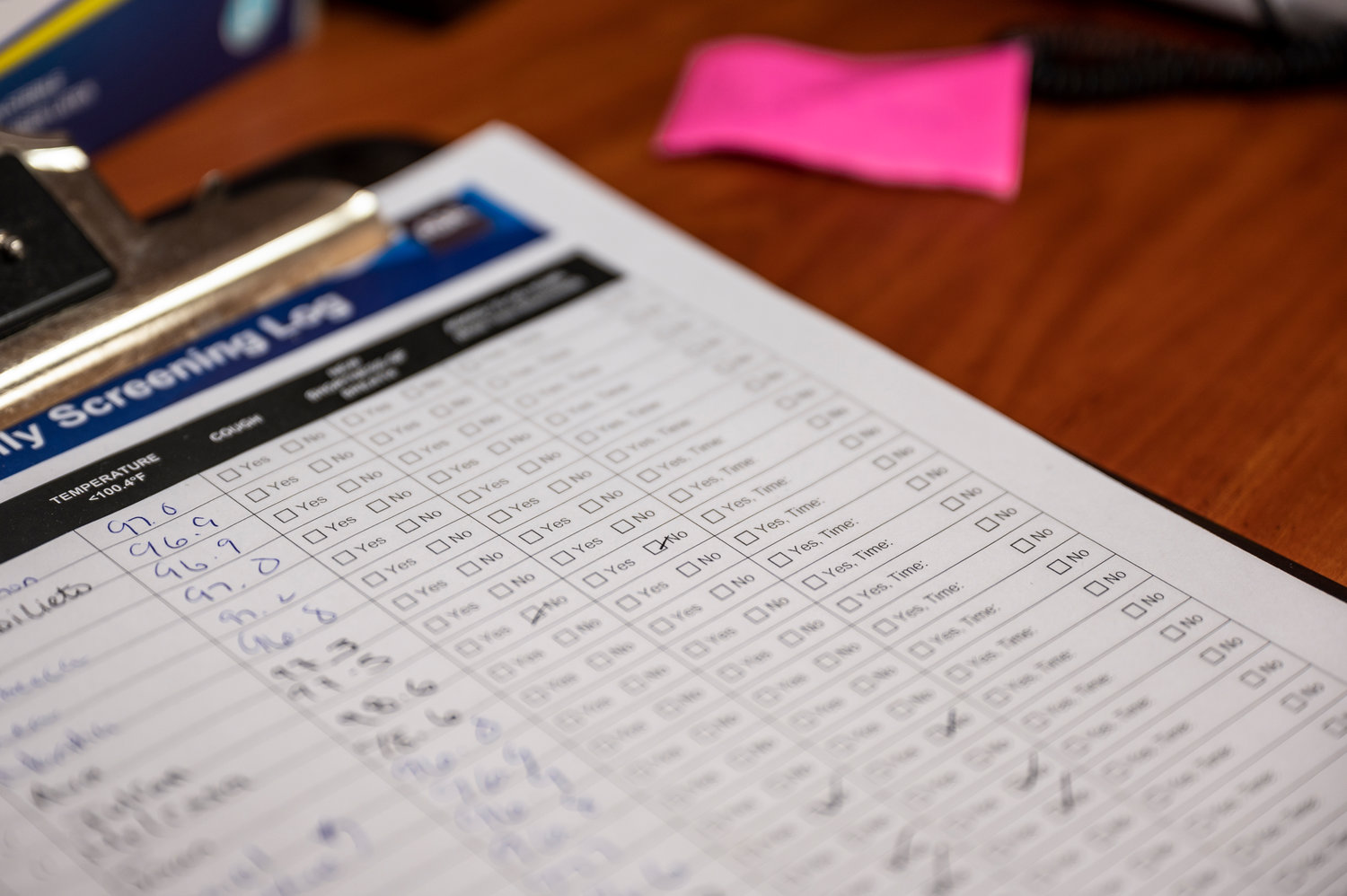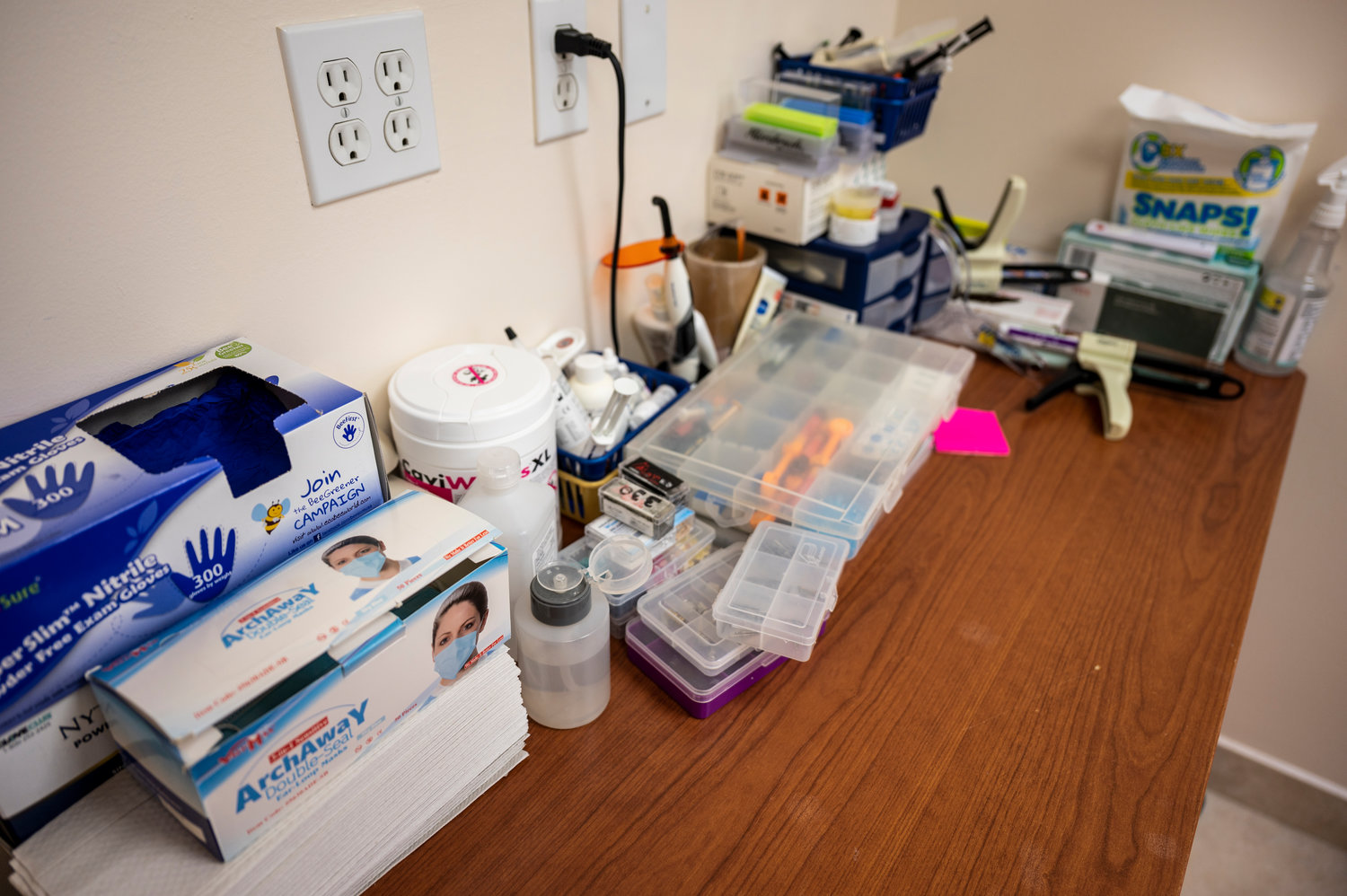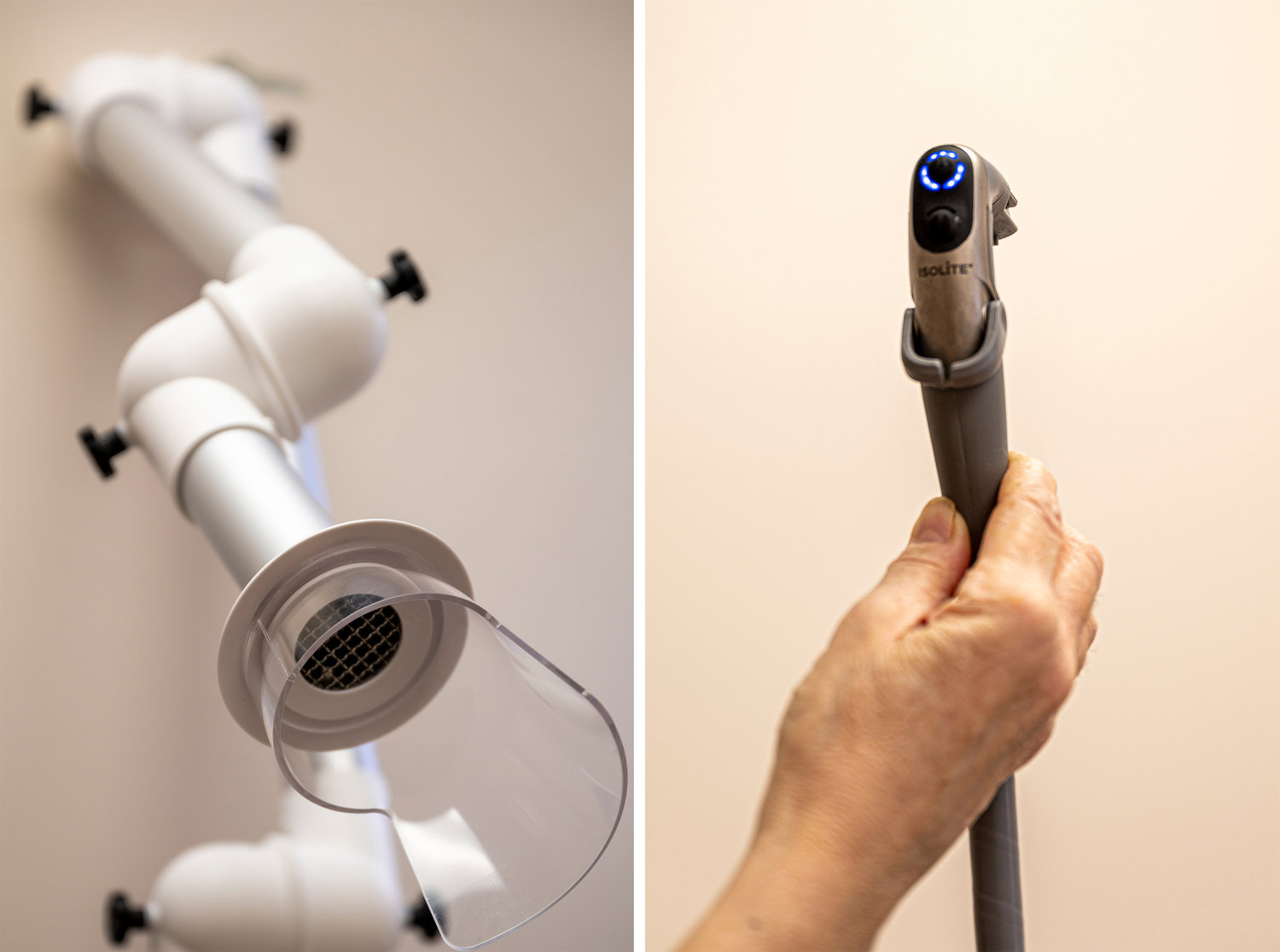Dentists, hygienists want turn at vaccine
For the better part of a year, coronavirus safety measures have become a daily mantra: Wear a mask. Stay six feet apart. Only gather with members of your own household.
But what happens when your job makes it impossible for you to follow those first two directives?
That’s the dilemma facing many dental workers during the coronavirus pandemic. Obviously, the nature of their work involves the mouth — meaning their patients can’t wear a mask while they’re treated. And dental workers need to get up close and personal to clean and treat their patients’ teeth, making it all but impossible to physically distance.
Dental workers wear full personal protective equipment while on the job, but they don’t know where their patients have been, leading to some anxiety about contracting the coronavirus. And even with symptom questionnaires and temperature checks in place in efforts to weed out potentially contagious patients — such measures wouldn’t stop someone who is asymptomatic and still capable of spreading a disease that already has killed hundreds of thousands of people in the United States.
That’s why dentist Pearl Sussman thinks she and her colleagues at Pearl Dental Spa on Riverdale Avenue deserve a spot high on the list for receiving the coronavirus vaccine. And while vaccination efforts are proceeding more slowly than anticipated across the country, she has yet to see dental workers like herself anywhere on the priority list.
The first phase of the state’s vaccine distribution targets front line health care workers, along with nursing home staff and residents. The Centers for Disease Control and Prevention suggests the next phase should target people older than 75 along with other front line essential workers like emergency responders, teachers and grocery store workers, according to The New York Times.
Some dental workers were included in those vaccination lists, Sussman said. Not because of the nature of their work, but instead because of where they work.
“Dentists that work based in a hospital … have received the vaccine or are in the process of receiving the vaccine,” Sussman said. “I think if you work in a dental clinic in a hospital, it shouldn’t be different than if you work in a private practice. I don’t think this virus is intelligent enough to know, ‘Hey, I’m in a private practice, I can’t be infectious.’”
Because Sussman’s practice is private, she has no idea when the vaccine will arrive at her door. And with coronavirus cases on the rise in the city yet again, their work is only becoming more perilous with each passing day.
For many months during the pandemic, hospitals postponed any non-essential surgeries in an effort to free up hospital space for those needing intensive care from COVID-19 complications. And some might argue that dental work is non-essential, and as a result, dental workers shouldn’t be a high priority when it comes to vaccination.
But Sussman believes dentistry can be just as essential in maintaining a patient’s health as other medical disciplines. She recalled a case last year where a routine trip to the dentist saved one of her patients’ lives.
“Weeks before we (closed) the office, I had someone with a lesion on their tongue, and it was cancer,” Sussman said. “We saved her. We found it early.”
Jenny Machuca has been a dental hygienist for 16 years, working for Sussman at least half that time. While the dental office was closed for several months, Machuca contemplated whether she should even go back to work because of her virus exposure concerns.
“I wanted to go back to work, but at the same time, I didn’t want to go back to work, because there was a lot of fear,” Machuca said. “Even when Dr. Sussman texted us and said, ‘I think we’re going to go back soon,’ I was thinking (of not going) back because I was afraid.”
Despite her reservations, Machuca ultimately did return. But some of the new policies as part of this “new normal” have caused additional work place stress for her. Not only can she not interact with her coworkers in the ways she used to, some seeking treatment from Machuca experienced a few bumps in the road when it came to the new procedures.
“The patients were not happy with it,” Machuca said. “We were telling them, ‘Please don’t just walk in. Call us and let us know that you’re there because we can’t have a lot of people in the waiting room.’ And people were getting upset because we were telling them to please just walk outside and wait outside.”
While Sussman thinks the criteria to get a coronavirus vaccine should be expanded to include her line of work, she doesn’t think distribution should be completely laissez-faire. Instead, she says dental workers should need to prove where they’re employed.
Dentists have a national identifier provider number, which Sussman thinks can be used to verify their work in the field. But for dental hygienists and assistants, no such classification exists. In this case, Sussman thinks they should present tax forms to qualify.
Sussman believes these procedures can make the vaccination process more legitimate and ensure everyone who gets the vaccine actually needs it for their work.
“People have said, ‘Can I come work for you just to see if I can get the vaccine?’” Sussman said. “The things that people want to do in order to get the vaccine is beyond belief.”
The vaccine’s arrival in the city certainly showed a light at the end of the tunnel for many. But for Machuca and others in her line of work, they won’t sleep soundly until dental workers are fully vaccinated. And until they are, Machuca believes they will continue to be at a needlessly high risk for contracting the virus.
“I don’t want to say that hospitals are not” at risk, she said. “Of course they are. But we are the ones producing all of these aerosols, and I think that we are at an even higher risk than doctors right now.”

